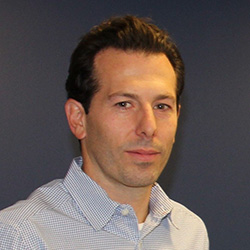In This Article
- Deep Tissue Massage Training
- Palliative Care Massage Therapy
- Medical Massage Therapy
- Sports Massage Therapy
- Massage Therapy in California
- Massage Therapist in Florida
- Massage Therapy in Arizona
- Massage Therapy in Texas
- Massage Therapy in New York
- Massage Therapy in Maryland
- Massage Therapy South Carolina
- Massage Therapy in Connecticut
Learn how to become a massage therapist in Virginia: Education & salary data

Whether you’re a resident of the state or about to move, now is an incredibly opportune time to pursue becoming a massage therapist in Virginia. Like many other states, “There is a shortage of massage therapists due to the pandemic accelerating career decisions many professionals had been contemplating before the health crisis,” said Newsday.
“Well trained massage therapists are more sought after now than any other time in the last 20 years,” said Michael Tramonte, president of the Northern Virginia School of Therapeutic Massage. “COVID-19 sent many massage therapists who were approaching the end of their career into early retirement…leaving a perfect environment for new therapists to enter the industry.”
If you want to learn more about obtaining a massage therapist license in Virginia, you should be aware that the Virginia Department of Health Professions’ Board of Nursing (VBON) is responsible for issuing massage therapist licenses in the state.
Requirements for becoming a massage therapist in Virginia
Anyone who wishes to become a massage therapist in Virginia must satisfy the following requirements:
If you qualify, you must apply for a license online through the Virginia Board of Nursing.
Education and training requirements
New applicants for a massage therapy license must first complete an accredited massage therapy program of at least 500 hours. Massage schools must mail your official transcript directly to the VBON to be considered towards your application.
Applicants who were educated in a foreign country must also pass a Board-approved English language proficiency examination and have their education evaluated to make sure it is comparable to VBON’s educational requirements.
Exam and Virginia massage therapy license requirements
After completing their course of study, graduates must take and pass the Massage & Bodywork Licensing Examination (MBLEx) issued by the Federation of State Massage Therapy Boards (FSMTB). Passing scores must be sent directly from the FSMTB to the VBON. Once the VBON verifies that they have received all your application materials—transcripts, passing scores from the MBLEx, background check, etc.—you should receive your massage therapist license.
If you submit your application but are still waiting to take the MBLEx, you can apply for a provisional license. This license is issued for one 90-day period and cannot be renewed. If you fail the MBLEx, your provisional license would be revoked.
If you submit your application but are still waiting to take the MBLEx, you can apply for a provisional license.
Continuing education requirements for massage therapists in VA
Massage therapists in Virginia must renew their license every two years. During each two-year cycle, they must either:
Massage therapists won’t have to submit evidence of one of the above to get their licensed renewed. Rather, the VBON conducts random audits to make sure individuals are in compliance. If selected for an audit, a massage therapist must provide supporting documentation of compliance within 30 days. Massage therapists are exempt from the continuing education requirements for the first two years following their initial licensure.
Legal considerations for massage therapists in Virginia
Transferability: Out-of-state applicants and massage therapists
If you already have a license from another state or territory, applying for a massage therapist license in Virginia is fairly straightforward. You’ll have to submit all the same application materials as new applicants (background check, transcripts, etc.), but the main difference is that you can provide passing scores from either the MBLEx or the National Certification Exam from the National Certification Board for Therapeutic Massage & Bodywork (NCBTMB). You must also submit verification of any licensure/certification/registration from each state/jurisdiction in which you have ever been licensed/certified/registered.
Professional conduct and ethical guidelines
Information on professional conduct, ethical guidelines and grounds for disciplinary action can be found in Chapter 30 of the Code of Virginia.
Scope of practice
In Chapter 30 of the Code of Virginia, massage therapy is defined as, “the treatment of soft tissues for therapeutic purposes by the application of massage and bodywork techniques based on the manipulation or application of pressure to the muscular structure or soft tissues of the human body.”
It goes on to say that massage therapy does not include:
Working as a massage therapist in Virginia
How much does a Virginia massage therapist make?
According to the 2023 Occupational Employment and Wage Statistics from the U.S. Bureau of Labor Statistics (BLS), the median annual salary for massage therapists in Virginia is $52,030. The Washington D.C.-Arlington-Alexandria metropolitan area which crosses state lines has the highest median annual wage in the state, followed by the metro areas of Charlottesville, Richmond and Virginia Beach-Norfolk-Newport News.
“The quality of your massage training program will deliver in immediate and long-term return on the investment of time and money spent at your school,” Tramonte said. “Upon graduation, create a five-year plan and choose the continuing education classes annually. Choose CE instructors who can be your mentor and classes which will deliver the advanced techniques which will help retain your clients, increase your income and guide you to your career goals.”
Job outlook and finding employment opportunities
The job outlook for massage therapy nationwide is exceptional—the BLS estimates a growth of 20% through 2032, much faster than the average across all occupations. Some reasons for this include increased acceptance of massage therapy as a complementary medicine and the ever-increasing applications of massage in different areas such as sports massage, medical massage and prenatal massage.
“The massage industry is projected for significant growth due to the high demand for massage however the shortage of massage therapists is a problem. There are not enough people who are willing to become massage therapists enrolling into massage school,” Tramonte said. “For those who have a calling to the profession, the sky is the limit!”
Setting up a private practice in VA
If you want to set up a private practice, your best bet is to consult your local county and/or municipality to find out what it takes to obtain a local business license since this process can vary in different places.
“There are some exciting opportunities with low startup costs for the entrepreneurial massage therapist. In most basic terms, one could partner with and secure a treatment room within an existing business and client base—gym, hotel, chiropractor—to deliver massage treatments,” Tramonte said. “I recommend receiving some college level training in accounting, marketing and business plan writing prior to entering into any entrepreneurial venture. A great resource for business plan writing and the steps to start a business is the Small Business Administration website.
Staying up to date on industry developments and trends
A fantastic way for massage therapists to stay in the loop on local developments and trends is to join massage therapy organizations. The American Massage Therapy Association (AMTA), for example, has chapters for every state, including Virginia. Chapters frequently put on local events, including an annual conference, which provide massage therapists the opportunity to learn and network.
For any questions regarding licensure, license renewal, laws and regulations, you should always refer to the Virginia Board of Massage.
Getting started
Now that you understand what it takes to be a massage therapist in Virginia, it’s time to start searching for massage programs that meet your professional goals. Getting a solid massage education is essential for both honing your skills and for licensure. Start by looking for schools with programs of at least 500 hours and you’ll be well on your way to a rewarding massage career.


With professional insights from:
Michael Tramonte
President, Northern Virginia School of Therapeutic Massage


